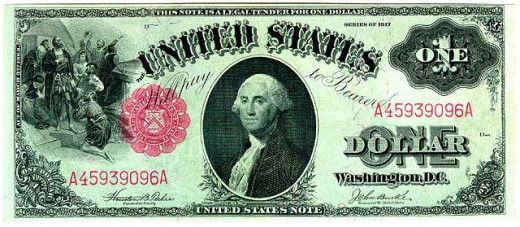Tips to Retire Early
Retirement seems like a pipe dream to many Americans today. A large number of Americans have seen their level of retirement savings fall. Defined-benefit pension plans are not nearly as common as they once were, and many Americans are concerned that social security will not be around to benefit them, even though they have already paid into it for 10 or 20 years. Just because there is more uncertainty about retirement does not mean that some Americans cannot retire early. Here are some tips that should help in saving up for retirement.

Get an Education to Retire Early
Today, there are questions as to whether a higher education is worth it. Just about anyone can point at a number of famous baseball players who make millions annually after getting drafted right out of high school. If you are reading this article, you are likely not one of those handful of people. Chances are, you've actually had to work for a living. One of the biggest indicators as to how much money people can expect to earn over a lifetime is their level of education.
People who have merely a high school education can expect to earn about $1.3 million over the course of their working lives. It is possible, but not likely that these people will be able to retire early on their earnings. People without a high school education will make even less on average. On the other hand, those who have a bachelor's degree can expect to earn around $1 million more than their counterparts who only have a high school diploma at around $2.3 million over the course of their working lives. Early retirement is much more likely for this demographic.
Those who get a graduate degree can see their lifetime earnings go up over $3 million on average for those with doctoral and professional degrees (i.e. MD or JD). In spite of its cost, higher education is usually worth it when it comes to earning more money.
Join the Military or another High-Risk Occupation to Retire Early
Those who want to retire early may want to look into the military or another high-risk occupation like law enforcement. These jobs can be quite dangerous, but there can be a payoff for those who stay safe and put in their time.
People who enlist in the military can retire with just 20 years of service. Because many of these people joined up when they were 17 or 18 and just graduated from high school, they can retire well before the age of 40. Most of these retirees will not be living the high life after 20 years in the military, but they will have a consistent stream of money coming in, which makes it easier to make it on a part-time salary doing something they enjoy.
When it comes to education, the military will also pay for much of it. Those who get a bachelor's degree can qualify for Officer Candidate School and a bump in pay if successful. This will only increase the amount of money available in retirement and put those who earn the degrees into the highly educated category that will earn more if they decide to work after their service.
When do you anticipate retirement?
Save, Save, Save to Retire Early
Many people save a bit of their paycheck every payday to maximize their retirement nest egg. Small amounts of money saved at age 16 or 20 can build up into large amounts of money by the time someone is 50 or 55 because of the time value of money and compounded interest. Of course, good investing is necessary to ensure high returns. A good financial expert can help in finding the safest investment vehicles.
Those who wait to save until they are 40 or 50 are at a severe disadvantage when it comes to retiring early because they do not have the time available to compound interest. Therefore, it is important for those who are young to start early and keep to the plan. The bigger the amount of savings each payday, the more likely you are to retire early on your savings.
Avoid Useless Debt
Debt is one thing that can end a bid for early retirement. Some real estate debt may be advisable if you are planning to sell the property for a profit or you are using the house for living arrangements.
All other debt that can be avoided should be avoided if at all possible. Debt incurs interest costs, which means that you are paying the bank more than a good or service is worth on the market. Do you really need that 15th pair of shoes or that new set of golf clubs? Probably not, especially if you have to finance them. Saving the money is just about always better than going into debt for consumer goods (unless they will be sold for more money).
Start a Business or Buy Real Estate to Retire Early
Many of the people who are able to retire early make large chunks in business or real estate. Unlike the other methods of preparing for early retirement, real estate and business are much more risky endeavors, and you are actually more likely to go broke than to be successful. Only 44 percent of new businesses are still around after 4 years of operation. The key is to find a profitable niche and then do it better, and preferable cheaper, than everyone else.
Real estate can take a large amount of capital to get into. As the housing market has shown in the past few year, real estate is not a sure bet and people can definitely lose money. For those who are able to buy low and sell high, however, the real estate market can make an early retirement on the beach or the golf course.
401 (K) and IRA Savings
The most common investment vehicles that future retirees use today are the 401 (k) and the IRA. The first is administered by an employer, while the second is handled by the individual. If available, the 401 (k) is a better deal because of the larger contribution limits per year ($18,000 vs. $5,500 as of 2017).
Also, many companies will match employee contributions to a certain amount. For example, if an employee makes $50,000 per year and the employer will match up to 5 percent of an employee's salary. If the employee contributes the maximum available for the match, they would have a contribution of $2,500. The employer match would, in effect, bump that $2,500 to $5,000. This is effectively a 100 percent return on investment, and that is hard to beat.
The only downside of looking only at these retirement vehicles is the age restriction for withdrawals. Those who withdraw from their 401 (k) or IRA before they turn age 59 1/2 are socked with an early withdrawal penalty. Those who wait until that date can take out all of their money at one time or in small chunks with no penalty.
Conclusion
It's important to keep in mind that none of these options is a sure bet. Things can happen. Industries can collapse. People can get sick and not be able to work. Investments can go badly. It is important to check with a financial adviser to see what the best route to take would be for a person at each stage of life. However, these tips to retire early can really come in handy because those who are looking to retire early should start planning as soon as possible.








